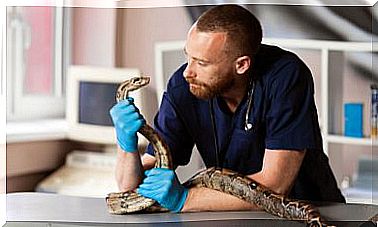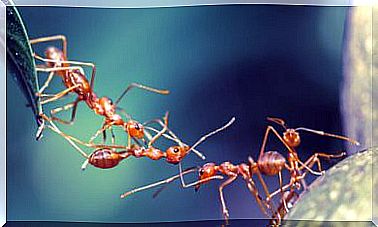Canine Mast Cell Tumors How To Treat Them
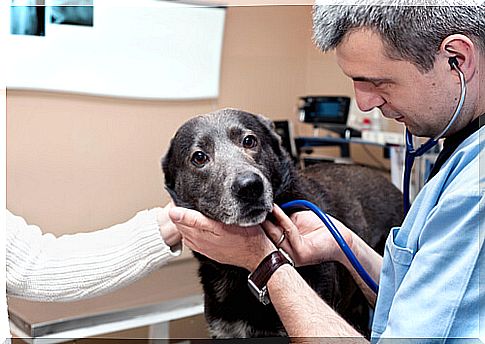
When we dive into the exciting world of dermatology, nothing is what it seems, least of all when dealing with mast cell tumors. In a reading of a book on cytology, a discipline that I am passionate about, I remember how the author referred to this type of tumors as “the great imitator”.
Later we will explain the reason for this curious name, and we will try to focus on the therapeutic possibilities that exist against this pathological process.
Mast cell tumors or mast cell tumors
When we talk about mast cell tumors, we are referring to the skin tumor that our canine companions suffer most often, and that fact is not trivial. It is estimated that around one in four or five skin tumors may correspond to a mast cell tumor.
This cell type is related to the immune response to any type of allergy. They are responsible for releasing histamine, heparin, and other substances. And yes, it is the same histamine that antihistamines ‘neutralize’.
Etiology and form of presentation
For sure, the reason for this abnormal growth of the tumor process is not very well known. However, it is suspected that it may have a multifactorial origin, caused by genetic alterations, viruses, skin inflammations and other endogenous and exogenous causes.
Any dog can develop a mast cell tumor, although brachycephalic breeds, that is, with a flattened snout, have a special predilection.
Clinically, it appears in the dermis or epidermis as a skin lesion of any kind. And when I say of any type, it is of any type, and hence that of ‘the great imitator’.
Potentially, anything on the skin can be a mast cell, even a tick if you hurry me. Throughout my career I have treated cases of wart-shaped mast cell tumors, skin irritation, moles, pimples, even once an owner thought that his dog had a strange nipple and it turned out to be a mast cell, you can imagine …
For this reason, it is important to go to your vet at the slightest suspicion that something is wrong.
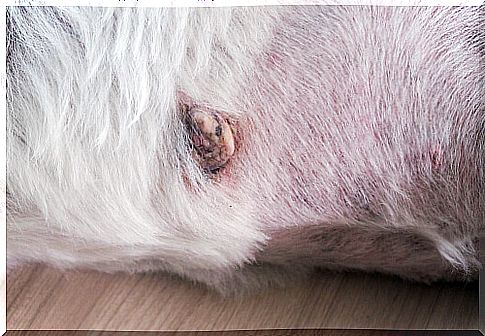
Treatment
Regarding treatment, there are, broadly speaking, three options that will depend on the degree of malignancy and involvement of the tumor.
Surgery
It is a treatment of choice for tumors located in the skin or in the tissue, and in areas where there is the possibility of performing surgery with sufficient margins to prevent it from reproducing again.
After excision of the tumor, ideally a perimeter of at least three centimeters should be included around the primary focus of the tumor. This consideration is essential to avoid recurrences.
If the surgery cannot be carried out with these considerations, for example, a tumor next to the eye where the excision perimeter cannot be extended, it is recommended to “remove what can be” and complement with any of the following therapies.
Radiotherapy
An adjuvant treatment indicated for situations similar to those of the previous example. On the other hand, it is especially interesting in tumors whose diagnostic evaluation has warned of a possibility of a possibility of recurrence, or where it is difficult to remove it again if this relapse occurs.
Unfortunately, despite its benefits, the use of radiotherapy in veterinary medicine is not very widespread, and few centers have the equipment and personnel to carry out this type of intervention.
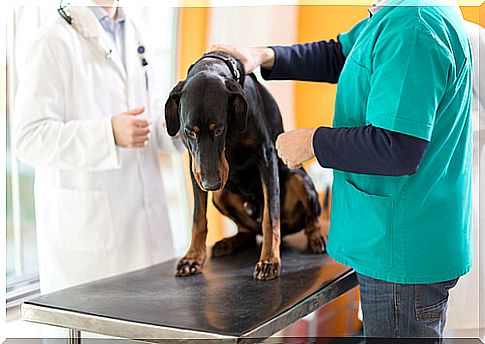
Chemotherapy
This treatment is especially indicated for animals with mast cell tumors that have metastasized, are multiple presentation, or whose surgical removal or treatment with radiotherapy cannot be carried out, either due to advanced age or due to lack of resources.
There are various chemical treatment protocols, the choice of which will depend on the criteria established by the clinical veterinarian.
From this space I would like to collect the importance of early diagnosis. In the event of any strange injury that you see to your dog, contact the veterinarian so that he can evaluate it correctly. Mastocytoma, if treated early, has a much better prognosis.





